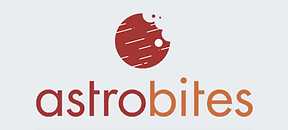RECA INTERNSHIP PROGRAM 2022
The proposed period for the second edition of this internship program is the summer of 2022. The dates are flexible by mutual agreement between the supervisor and the student, but the research aims to be completed in a range of approximately 10 weeks between May and August 2022. Therefore, full dedication to research by the student is expected during that period.


PROJECTS 2022

Complex organic molecules in circumstellar regions: Experimental study of ethanolamine
Main Supervisor:Dr. Heidy M. Quitián-Lara
(University of Kent-Canterbury-UK),
Secondary Supervisor: Dr. Heloisa M. Boechat-Roberty
(Observatório do Valongo-UFRJ-RJ-Brazil).
Student: Kelly Vanessa García González

Study of the linearity of the CCD detectors of the Vera Rubin Observatory.
Main Supervisor:
PhD. Craig Lage
(University of California, Davis, USA)
Secondary Supervisor:Dr. Andrés A. Plazas Malagón (Princeton University/Rubin Observatory, USA)
Student: Jeronimo Calderon Gomez

Study of the Photon Transfer Curve in the CCD detectors of the Vera Rubin Observatory
Main Supervisor : PhD. Andrés A. Plazas Malagón
(Princeton University/Rubin Observatory, USA)
Secondary supervisor:Dr Craig Lage (University of California, Davis, USA)
Student: Lina Marcela Giraldo Murillo

Predicting galactic properties with artificial intelligence
Supervisor:Dr. Francisco Villaescusa Navarro
(Flatiron Institute/Princeton University)
Student: Nicholas Echeverri Rojas

Maps of galaxy formation in the near universe
Supervisor:
Dra. Karín Menéndez-Delmestre (Observatório do Valongo, Universidade Federal do Rio de Janeiro)
Student: Sofia Guevara Montoya

Estimation of the Hubble constant from BAO signals with LSST-simulated data.
Supervisor:Dr. Javier Gonzalez Sanchez
(Federal University of Sergipe, Brazil)
Student: Miguel Antonio Sabogal Garcia

Simulated images of crowded star fields
Supervisor:
PhD. Luis Henry Quiroga-Nunez
(National Radio Astronomy Observatory/University of New Mexico, EEUU)
Student: Laura Margarita Rodríguez Ortiz

Measuring the distribution of dark matter in the Milky Way with the Vera Rubin Observatory and FIRE simulations
Senior Supervisor: Dr Nicolas Garavito Camargo
(Flatiron Institute)
Secondary Supervisor. Dr. Veronica Arias
(National university of Colombia)
Student: Stephanie Carolina Cely Rodriguez

Formation of planets in multi-star systems
Senior Supervisor: Nicolas Kurtovic PhD (c) (Max Planck Institut Für Astronomie, Germany)
Secondary Supervisor: Dr. Paola Pinilla
(Mullard Space Science Laboratory - University College London, United Kingdom).
Student: Julian Camilo Gaviria Alvarez
ORGANIZING COMMITTEE 2022
.jpeg)
VALENTINA ABRIL-MELGAREJO, PHD
Postdoctoral Researcher
Space Telescope Science Institute, USA

ALEXANDER BONILLA RIVERA, PHD
Federal University of Juiz de Fora, Brazil


Postodoctoral Researcher,
University of California, Berkeley, USA




JAVIER GONZALEZ SANCHEZ, PHD
Assistant professor
Federal University of Sergipe, Brazil

Staff Astronomer
University of Antofagasta, Chile

HEIDY QUITIÁN LARA, PhD
LUIS E. SALAZAR MANZANO, BSC
Visiting Researcher, University of Kent, UK
Jansky Fellow, National Radio Astronomy Observatory/University of New Mexico, USA
Master student
University of Texas Rio Grande Valley, USA
FAQ
I JUST STARTED A POSTGRADUATE CAN I APPLY?
No. You are ineligible.
I DO NOT STUDY IN COLOMBIA. I CAN APPLY?
I AM A STUDENT AT A COLOMBIAN INSTITUTION, BUT I AM NOT A CITIZEN COLOMBIAN@. I CAN APPLY?
Yes!
DURING THE MONTHS OF THE PROGRAM, I HAVE TO STUDY OR WORK. I CAN APPLY?
Unfortunately not. We are working to expand the range to more countries.
I AM NOT A STUDENT OF PHYSICS OR ASTRONOMY. I CAN APPLY?
In principle, our students must have full-time availability to work on their research project. However, you can apply as long as you justify how much time you can dedicate to the project
IS THERE ANY COST WITHIN THE PROGRAM?
Students of related careers in exact sciences (geology, chemistry, biology, mathematics, etc.), engineering or bachelor's degrees are welcome. to apply.
None!
HOW MUCH IS THE REMUNERATION PER STUDENT?
Approximately 800 dollars. The exact final value will depend on exchange rates and administrative expenses.
CONTACT US


.png)
.jpg)

.jpg)

